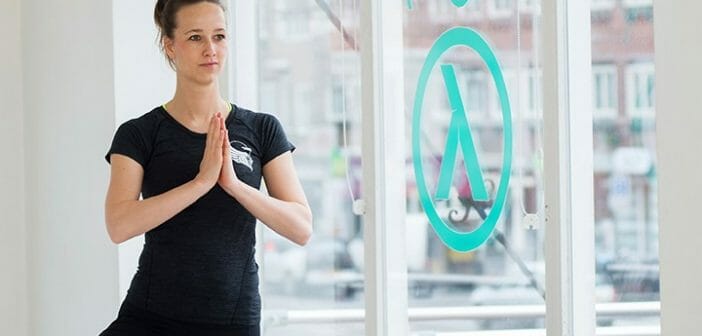‘The terms geek and nerd semantically refer to different things but I tend to use them interchangeably. To me, a geek is somebody who is overly interested in knowledge of a certain topic – which includes, but is not limited to technical themes. The definition of a nerd coincides with geek but is expanded with the questionably uncool trait of being considered “socially awkward”. I proudly call myself a nerd, but I haven’t heard any complaints about being socially awkward.’
From Admiring a Mystery to Admiring Its Unraveling
‘My PhD made me very aware of everything I don’t know. Partially because the learning process slows down exponentially when you’re pushing against the boundary of existing knowledge. But also because you realize there’s so much knowledge out there and limited time to learn. I really love physics and science in general. It helps us uncover a universe in which the truth can unify people. In politics, on the contrary, people debate and voice opinions constantly, but a specific truth let alone consensus is almost impossible to establish. In physics, experiments validate or reject models and theories, leaving very little room for discussion. I admire the mystery of natural processes, as well as the mathematical descriptions that demystify the phenomena: it’s miraculous that physics can do that.’
The Detour to Working in Artificial Intelligence
‘After high school I moved to Groningen to study Artificial Intelligence. However, that didn’t last long: I dropped out after only one trimester. It was the first year the university offered a propaedeutic program. I remember the courses feeling disconnected and having an aversion to those related to psychology. In one course we also needed to write code, which I had never done before and the course didn’t accommodate for that at all. I was teamed with a guy that solved the problem in five minutes but didn’t manage to explain how it worked leaving me with a good mark but knowledgeless. That was not a good first encounter with Computer Science. After that, I moved to Nijmegen to study Physics. Technical areas appealed most to my personal interests and talent. The idea of simply learning something by heart and then reproducing it was never my thing; I always preferred studying something that required me to understand it.’ Looking back that’s probably also where I clashed with the psychology courses as they required me to memorize loads of information and they didn’t really seem to understand the processes governing psychology.
Growing into a Nerd
‘Recently, an old study friend of mine got married, and he managed to dig up some old pictures of our study days. “Look, Lisa, you’re the only one who actually looked normal,” his wife joked. It’s true; I was quite a “normal” girly girl during my teens. It’s not like I stayed at home and took apart a computer in order to investigate how it works or anything you might expect from a tech-loving child. On the contrary, I was more interested in going out, boys and clothes. But, during my studies, when all the boys became a bit more ‘worldly’, I moved along the nerd axis.’
Nowadays, I happily juggle five balls at the same time.
The Common Denominator
‘I graduated when I was 26, and then did my PhD at the Dutch National Institute for Subatomic Physics. During my graduation, I moved into the direction of computer simulations, specializing in how nature’s smaller particles collide. I then got a job as a physicist and developer of medical software at the Antoni van Leeuwenhoek – the leading Dutch hospital that specializes in cancer research and treatment. In the two years I that I was employed there, I continued working on models, and created a medical application that predicts tumor motion with population data.’
‘The common denominator in everything I do is the creation of models – physics, artificial intelligence and other areas overlap. It’s all about using innovative new technologies in order to create models that can simulate processes optimally. The difference of doing this at Accenture is that every day is very diverse. At my previous jobs, I would deal with one or two projects per day, where nowadays, I happily juggle five balls at the same time.’
The God Complex
‘What I love most about solving complex problems is the ability to create something new. Besides enjoying the process of uncovering the solution, the feeling you get when you think you found the solution and you manage to program something effectively is indescribable. The idea you might have created a scalable system that could ultimately be very powerful is truly fantastic and empowering. Good code gives you the God feeling of creation. Not many things in life feel as great as having written an algorithm that can be applied to an enormous amount of data and retrieve even more information – programmers reading this will understand exactly what I’m saying. In my experience, physicists are generally pretty bad programmers. It’s because we don’t learn computer science, yet we think we can do everything. As a consequence, programming physicists tend to reinvent the wheel – and not always successfully. I learned to become a good programmer by suffering the consequences of my own badly written code and step by step you get better.’
The Rebel in Me
‘When the word “ambition” enters a conversation – which is inevitable when working at a consultancy firm – I always get a bit rebellious because I find it important to keep looking out for your colleagues as much as for yourself. Personally, I feel that people, as they get older become more moderate in everything they do and feel. For me, that also applies to my ambition level. I love my job, mostly for the simple reason that I do something that I love. I consider myself very lucky to have found a job at a consultancy firm that places so much emphasis on innovation in their R&D department. It’s fantastic to be in close proximity to the newest developments in technology and know-how, and to be able to translate that to something that could possibly impact society or corporate life.’
Welcome to the Pregnant Women Club
‘Speaking of impact: I’m pregnant with my first child. As wonderful as that is, I am still slightly in denial; associating myself with pregnant women and family life doesn’t feel natural at all yet. I am unaware of just how my life will change exactly and often wonder if I’ll still manage to work out four days a week. On the other hand, I’m also looking forward to the ‘full human experience’ and observing the effect of half of my dna. It will also be interesting to see if and how my work experience will change.’
Running Like a Junkie
‘I joined a group called The Amsterdam Running Junkies three years ago, and I absolutely love it. Every Tuesday night we meet at the Van Woustraat in Amsterdam, a few people cook dinner for everybody, and then we run. I’ve never been in a situation where it was so easy to become part of a group. If you run, and you show some dedication and show up regularly, you’re in the group. How often is it that easy to be belong somewhere? I was an average runner who thought 10km was enough, but after only three months of running with these junkies, I completed my first half marathon. If it wasn’t for my pregnancy, I would be training for the Berlin marathon now. Running a marathon is definitely a top post-baby-era priority.’





